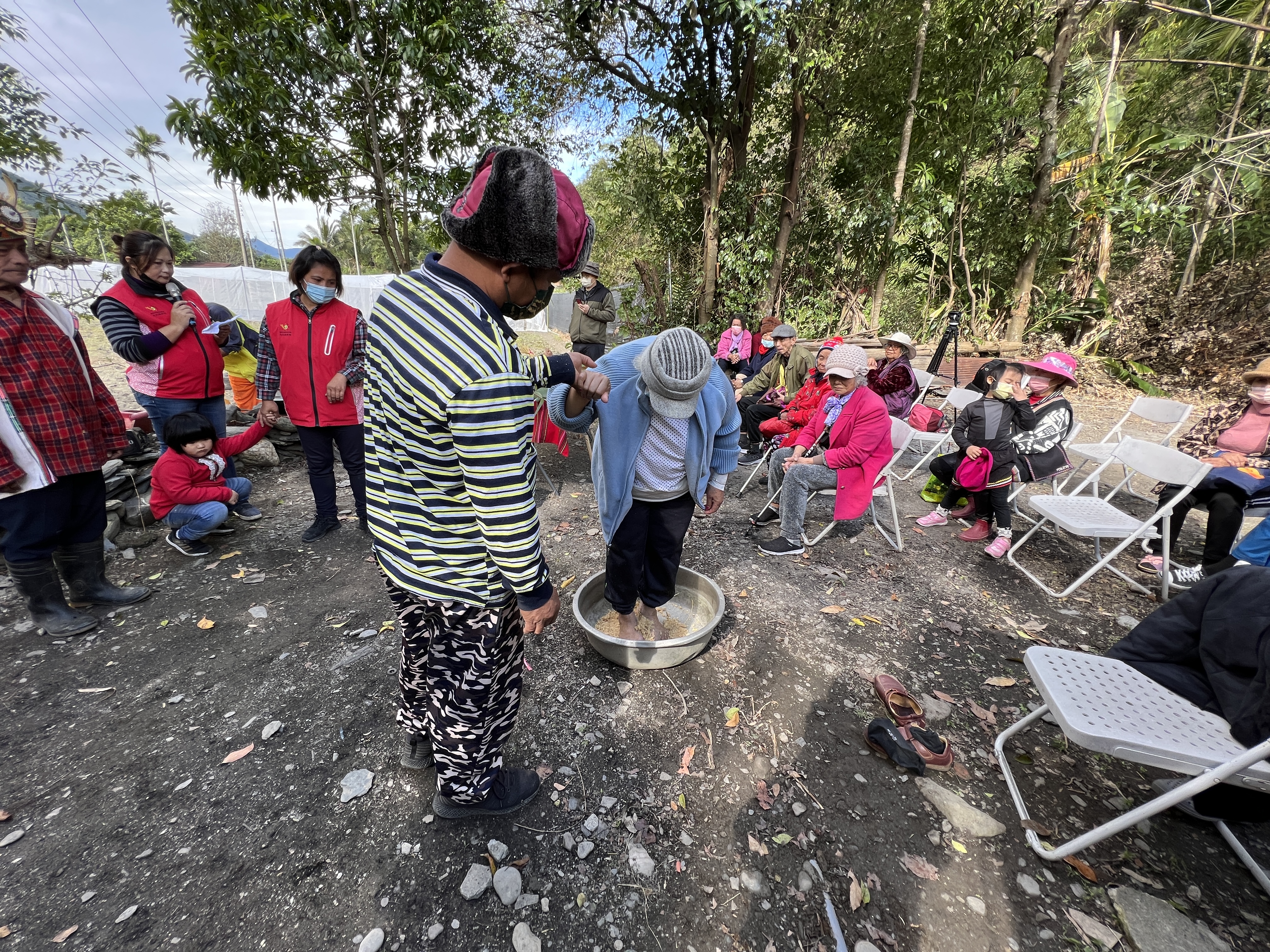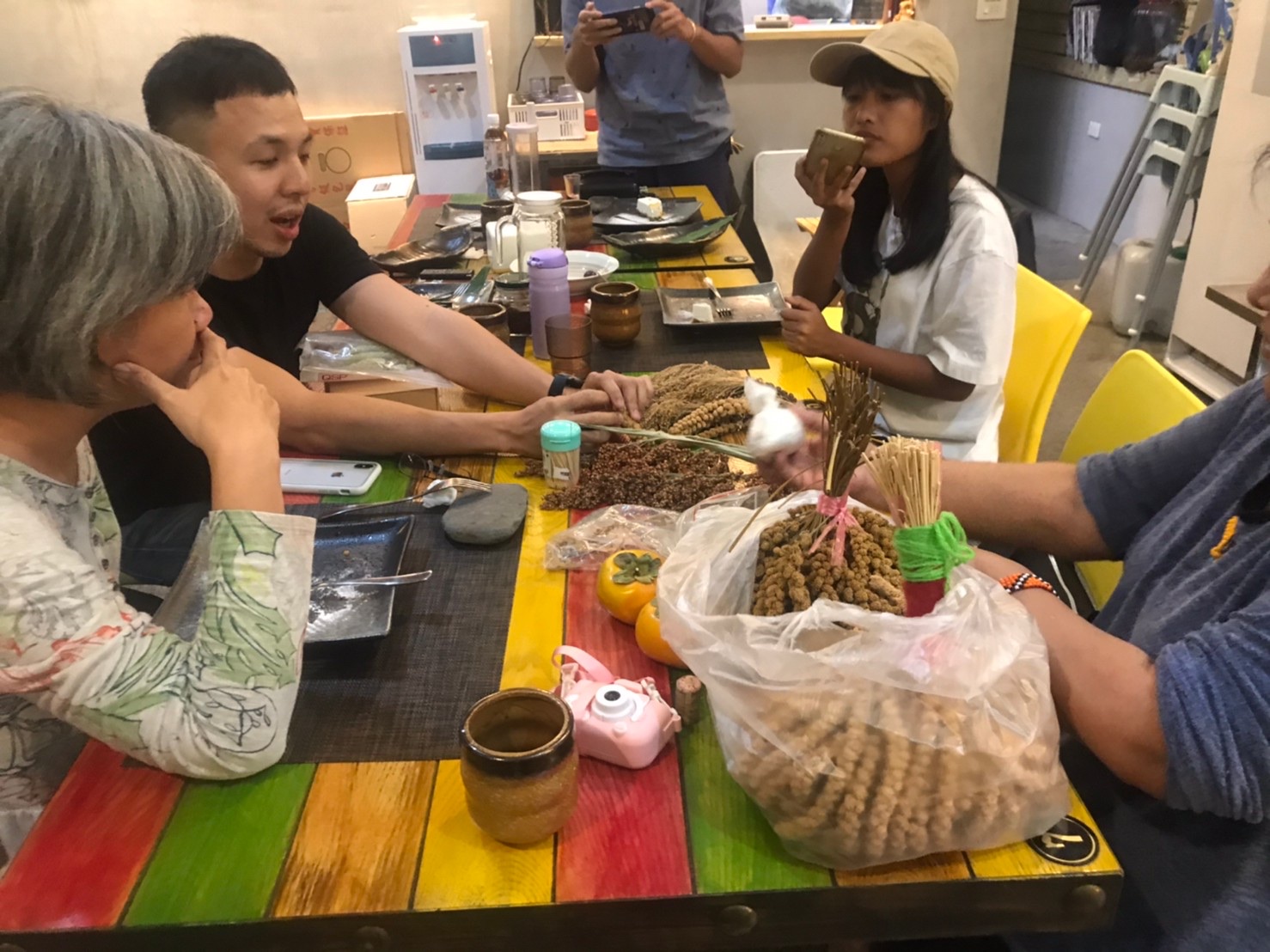
Mr. Ko-Hsuan Shao, a doctoral student in the Department of Bio-Industrial Communication and Development (left), Professor Yann-Rong Lin from the Department of Agronomy (center), and Principal Savungaz Tanapima from Jiou-Mei Elementary School in Xinyi Township (right) sharing seeds and specimens of 28 foxtail millet landraces
Foxtail millet was once a primary staple for the Bunun people, especially in Xinyi Township, Nantou County. However, due to Japanese colonization and subsequent impacts of market economies, foxtail millet cultivation gradually declined, leading to the disappearance of landraces and related seasonal rituals. In August 2020, Professor Ming-Jhe Tsai, Director of The Experimental Forest at the College of Bio-Resources and Agriculture, National Taiwan University (NTU), began leading a team aiming to revive foxtail millet cultivation. Collaborating with local organizations, Professor Yann-Rong Lin from the Department of Agronomy at NTU, an expert in researching miscellaneous crops, and Ko-Hsaun Shao, a doctoral student from the Department of Bio-Industrial Communication and Development at NTU, they initiated the restoration action through the Joint Efforts Program of The Experimental Forest of NTU and Its Neighboring Townships. Subsequently, in March 2022, in collaboration with E.SUN Bank, they launched the “Ten Years of Trees, Hundred Years of People: E.SUN NTU ESG Centennial Project,” bringing back landraces of foxtail millets to the homeland and initiating a larger-scale participatory revitalization effort along with a comprehensive industry development plan.

Cultivation progress of 28 foxtail millet landraces in the experimental forest and community nursery

The Bunun elders holding a foxtail millet sowing ceremony before planting, using their feet to thresh and sow the millet seeds

Professor Yann-Rong Lin (left), Mr. Ko-Hsuan Shao (second from left), and undergraduate student Maia Isnangkuan from the Department of Agronomy (right) interviewing residents in Xinyi Township about indigenous knowledge related to the foxtail millet landraces
Over the past years, the team has reproduced 28 foxtail millet landraces to Xinyi Township. Each landrace boasts distinct qualities regarding rice texture, flavor, and significance in the Bunun culture. They are used in crafting diverse dishes, including foxtail millet rice, rice cake, and wine. Each cuisine plays a unique role in various aspects of traditional Bunun life, including feasts, rituals, and special dietary choices for the elderly, pregnant women, or young children.
Young members of the Bunun communities in Xinyi Township also have spontaneously initiated a collective revitalization movement by sharing seeds and cultivation techniques. This effort showcases the strength of collaborative endeavors that transcend community boundaries. In the process of cultivation and learning, children in the Bunun communities develop a stronger sense of identity toward their ethnicity and culture.
Mr. Ko-Hsuan Shao, a doctoral student, has actively participated in the Program, collaborating with local organizations in Xinyi Township to advance revitalization. His commitment goes beyond sharing seeds and insights gained from field investigations; he takes concrete actions to preserve and carry forward the life experiences of the Bunun communities. Furthermore, his recent research promotes the diverse culture and ecological richness of Taiwan. His dedication and contributions were recognized with the “2023 Social Contribution Award” from National Taiwan University.
